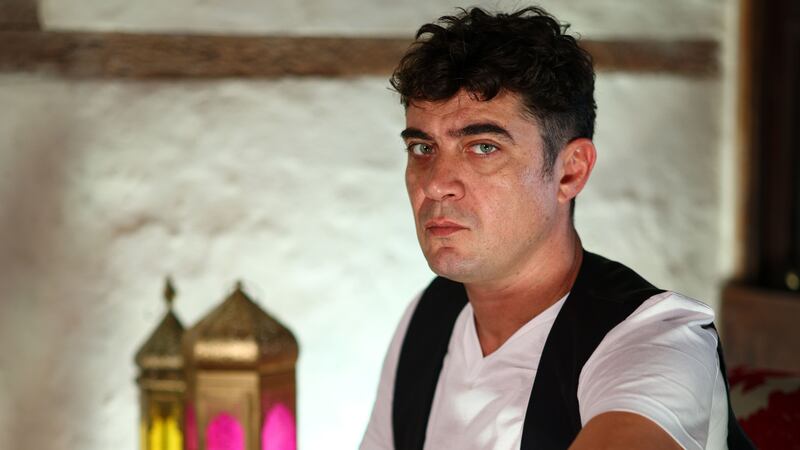
Question
My 11-year-old son can be really anxious at times. He says he has got ‘bad thoughts’ in his head that he can’t control. I try to get him to tell me what is on his mind, but he finds it hard to talk. Sometimes, he tells me he is worried he has done something bad in school (which turns out to be something incredibly minor when he eventually talks about it).
Once, he told me was worried he was going to hit and hurt someone, and he could not get the thought out of his mind. Most of the time he does not tell me and I see him ruminating. I, of course, try reassure him. He has never been in trouble in school and is the last child you would think would hit out or get into a fight. But it does not help.
I tried to get a referral to child and adolescent mental health services (Camhs), but they said it was not serious enough and put me on a waiting list for primary care. The thoughts are mentally exhausting for him. Where can I get him help?
Answer
Intrusive thoughts that are “taboo” or anxiety provoking are very common for both children and adults. While most people let them pass through their mind with not too much bother, for some they are intense and obsessive and are experienced as shameful or upsetting. Usually the person spends a lot of energy fighting these thoughts and trying to ward them off, but these battles and repression are not successful and thoughts come back stronger or in new forms.
READ MORE
Intrusive thoughts usually take the form of worries or “taboos”. Worries are usually experienced in the form of constant “what if’s” that plague a child’s mind such as “what if I can’t answer a question the teacher asks me?” or “what if mum gets killed in car crash?”. These worries can become associated with compulsive behaviours such as over preparing for school or constantly seeking reassurance, and sometimes develop into obsessive compulsive disorder (OCD).
Taboo thoughts occurs when the child visualises themselves doing something inappropriate such as stealing or hurting someone. Often they have sexual thoughts such as imagining someone naked or touching someone sexually that they feel ashamed about. At the start of puberty, “taboo” thoughts can become much stronger as they experience a big increase in their sexual and aggressive drive as well as the capacity of their mind to think and visualise.
Normalise what is happening
The most important thing you can do is help your son is to communicate that it is perfectly normal to have intrusive worries and “bad” thoughts. For example, you could say something like “the mind is wild and creative, and any sort of thoughts can pass through it. It is perfectly normal to think of killing someone even though you would never do anything like that”. Explain things in matter of fact and even a light tone of voice – there is nothing to feel embarrassed of ashamed about. The key message to give him is that – “thoughts come and go ... but you are not your thoughts”.
Listening to your son
Tell your son that he can talk to you about whatever is on his mind, and you will be there to listen and not to judge. However, recognise that it will be hard for your son to tell you all the details of his “bad thoughts” and some will remain private to him. As a result it can be helpful to talk about things in general terms communicating compassion and acceptance. If you have not done already, it would be useful to talk about sex and sexuality, and how as a teenager it is perfectly normal to have lots of sexual thoughts and feelings and that this is a sign of growing up.
Help your son accept his thoughts
The next step is to help your son notice and accept his thoughts. Rather than fighting to get rid of a thought, a good approach is to simply notice and say “ah there is one of those funny thoughts”. Your son can listen to it for a bit and then simply let it go. You want your son to let go any shame he has for experiencing these thoughts and instead to adopt an attitude of curiosity, compassion and even a sense of humour towards them. A good metaphor is to see these thoughts as passing clouds in the sky, you watch them come and go, but don’t fight or get too attached to them.
Help your son manage his thoughts
You can also teach your son ways to gently challenge troublesome thoughts that keep coming back. For example, if your son is struck by a repeated anxiety that he is going to make a mistake in school, you can encourage him to say to himself: “that is just my worry mind speaking ... I know that once I relax I can do well”. A good way to do this is to write out all the worry thoughts on a page, to examine then critically and then to write out new replacement thoughts he can coach himself with.
It is also important to help your son appreciate the strengths and positive intention of his thoughts – “your worry mind is trying to keep you safe ... it is reminding you of danger so you can prepare, but sometimes it is turned on just a little too much”. Or “having all those thoughts is a sign of just how creative and busy your mind can be ... imagine what you could do when you focus your mind on the good things you want to happen”.
Getting further help
While unfortunately there are often long waiting lists for public mental health services there are lots of good private therapists who are experienced with working with children and their parents. Pick a therapist from a reputable body who is drawing upon an evidence-based model for helping children with troubling worries such as cognitive behavioural therapy (CBT) or internal family systems therapy (IFT). There are also lots of practical online resources and self-help books about helping children with obsessive thinking such as What to do When Your Brain Gets Stuck by Dawn Huebner that could read with your son.
- Send in your question by filling up the form below, or by emailing health@irishtimes.com (with “John Sharry” in the subject line)
– John Sharry is Clinical Director of the Parents Plus Charity and an adjunct professor at the UCD School of Psychology. See www.solutiontalk.ie.












